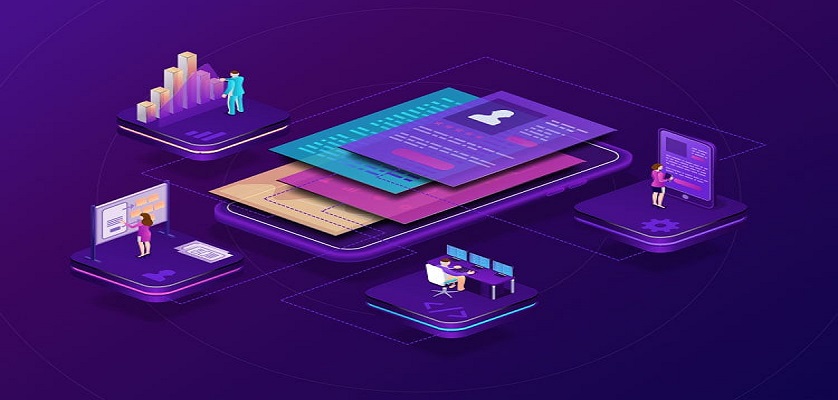In today’s era, the prevalence of mobile apps has increased a lot and it has become a part of our daily life. From ordering food and catching a ride to staying connected with friends and managing finances, there seems to be an app for everything. As a result, the demand for mobile app developers has skyrocketed, and with it, the need to choose the right programming language for mobile app development. In this article, we’ll explore the factors to consider when making this crucial decision and delve into some of the top programming languages for mobile app development.
These are the points you should keep in mind while choosing a programming language
Before we dive into specific programming languages, it’s essential to understand the factors that should influence your decision. The choice of programming language can significantly impact the development process, the app’s performance, and its potential for success. Here are some points you should consider:
1. Target Platform:
Are you developing an iOS, Android, or cross-platform app? Different platforms may require different languages or development approaches.
2. Project Requirements:
Consider the complexity and features of your app. Some languages may be better suited for specific types of applications.
3. Developer Expertise:
Your team’s familiarity with a particular language can influence development speed and code quality.
4. Performance:
Some languages offer better performance and responsiveness for resource-intensive applications.
5. Community and Ecosystem:
The availability of libraries, frameworks, and community support can simplify development.
6. Maintenance and Updates:
Think about the long-term maintenance of your app. Will the language remain relevant and supported?
Now, let’s explore some of the best programming languages for mobile app development, considering these factors.
1. Swift (iOS):
If you’re targeting the iOS platform, Swift is the primary language recommended by Apple. Swift offers a modern and concise syntax, making it easier to write and maintain code. It’s known for its high performance and safety features, which help developers catch and prevent errors during development. Swift also benefits from a large and active developer community and regular updates from Apple.
2. Kotlin (Android):
For Android app development, Kotlin has emerged as a top choice. It’s officially supported by Google and offers several advantages over Java, the previous standard for Android development. Kotlin is known for its concise syntax, enhanced safety features, and seamless interoperability with Java, allowing developers to leverage existing code. It has gained popularity rapidly and is now the preferred language for many Android developers.
3. JavaScript (Cross-Platform):
If you aim to develop cross-platform mobile apps, JavaScript is a versatile choice. Several frameworks and tools, such as React Native and Apache Cordova (PhoneGap), enable you to write code in JavaScript and deploy it on multiple platforms. React Native, in particular, has gained widespread adoption for its ability to deliver a native-like experience across iOS and Android.
4. Dart (Flutter):
Flutter, developed by Google, is gaining traction for cross-platform app development. Flutter uses Dart as its programming language and allows developers to create beautiful, natively compiled applications for mobile, web, and desktop from a single codebase. Dart’s simplicity and Flutter’s rich set of widgets make it an excellent choice for creating visually appealing and highly performant apps.
5. C# (Xamarin):
Xamarin, now owned by Microsoft, enables developers to create cross-platform mobile apps using C#. It provides a shared codebase, allowing developers to write a significant portion of the app’s code once and use it across iOS and Android. Xamarin’s integration with Visual Studio simplifies development for those familiar with Microsoft technologies.
6. Java (Android, Cross-Platform):
Although Kotlin has largely supplanted Java for Android development, Java remains relevant. It’s still an option for Android app development, especially for projects with existing Java codebases. Additionally, Java can be used for cross-platform development with frameworks like Codename One.
7. Python (Cross-Platform):
While not as common in mobile app development as other languages, Python is a versatile choice. Tools like Kivy and BeeWare allow developers to create cross-platform mobile apps with Python. Python’s simplicity and readability can be advantageous, particularly for rapid prototyping and small to medium-sized projects.
8. Lua (Corona SDK):
Lua is used in the Corona SDK, a development framework for creating 2D games and apps. While it may not be as popular as some other languages, Lua offers a straightforward and efficient scripting language for mobile game development.
Conclusion
Selecting the best programming language for mobile app development is a critical decision that can significantly impact the success of your project. Consider factors such as the target platform, project requirements, developer expertise, and long-term maintenance needs when making your choice.
For iOS app development, Swift is the top recommendation, offering performance, safety, and a thriving ecosystem. Kotlin is the go-to choice for Android app development, thanks to its modern features and official support from Google. For cross-platform development, JavaScript, Dart (Flutter), C#, and Python all have their strengths, depending on your specific requirements and preferences.
Remember that the best language for your project may not be the same as someone else’s. Assess your unique needs and resources, and choose the language that aligns best with your goals. Keep in mind that the programming language is just one piece of the puzzle—effective app development also relies on good design practices, testing, and ongoing maintenance. Ultimately, the success of your mobile app depends on a combination of factors, with the right programming language playing a crucial role in the overall process.

